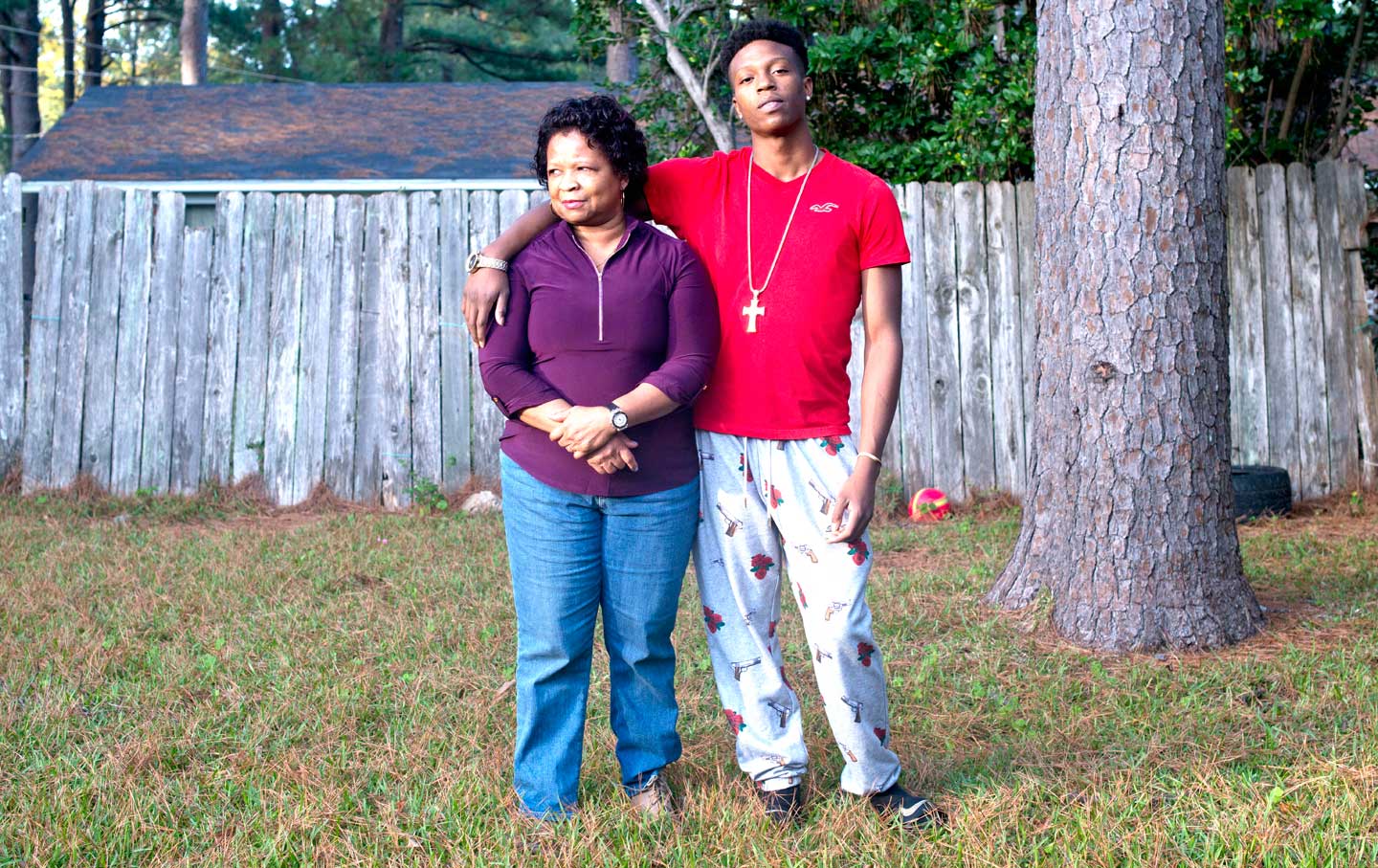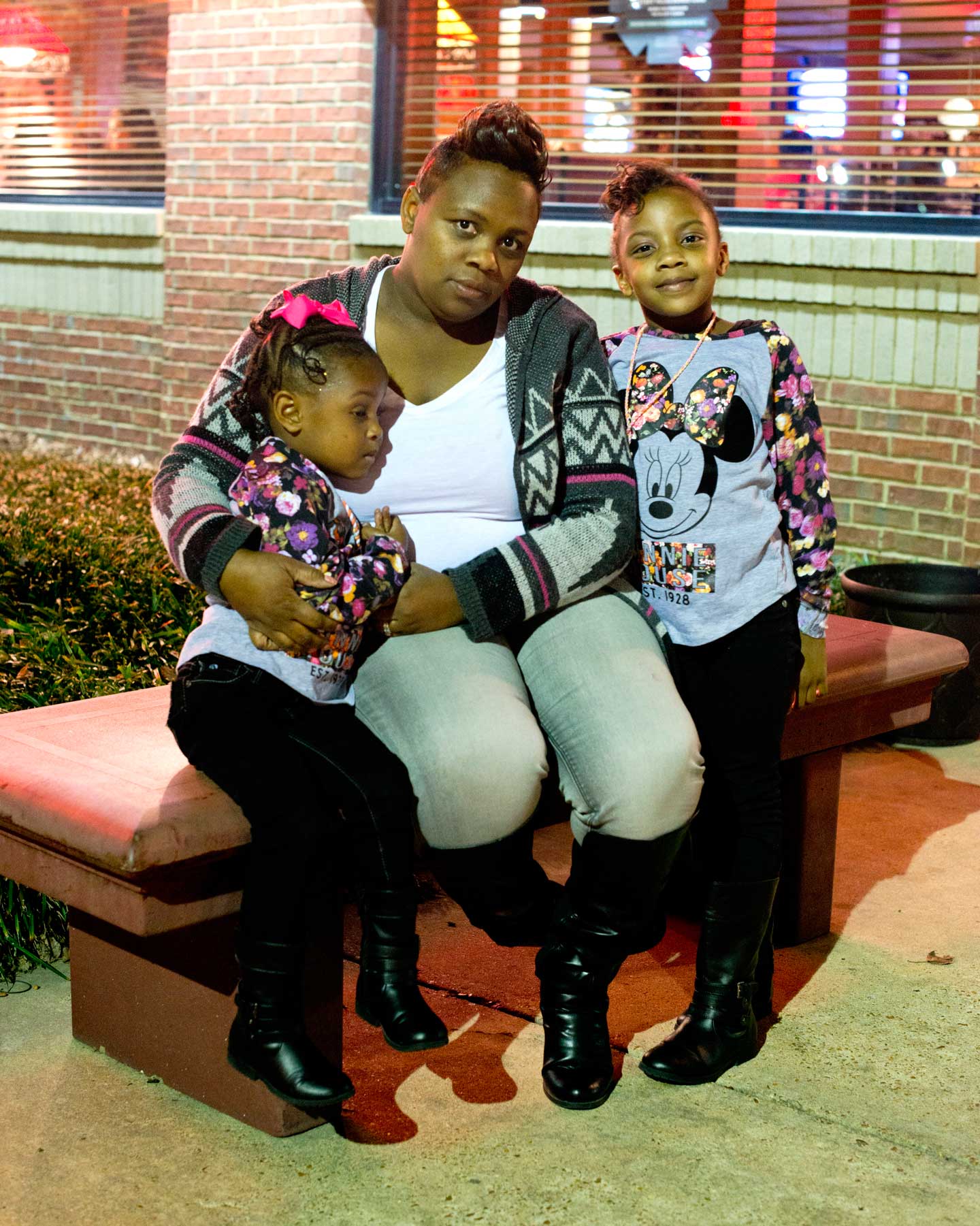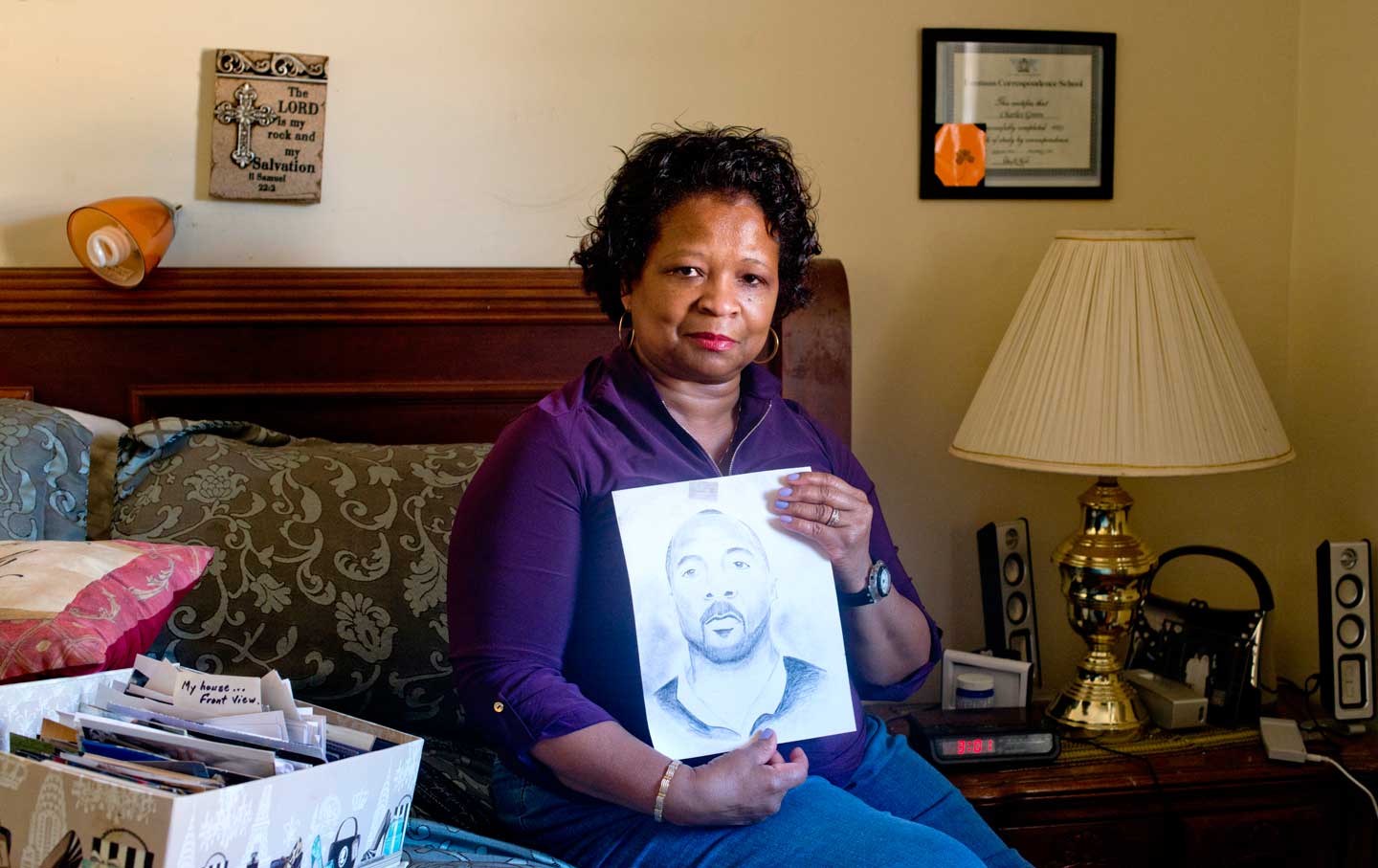Portions reblogged from The Nation article by Sylvia A Harvey
Sylvia Harvey knows about having a parent in prison. She grew up with one – her father was in Soledad State Prison in California. Until 1996, the California Department of Corrections has a Family Visiting program. After her mother died when she was four, Her dad made a ritual out of "big breakfast" on weekends. When she was five, he began serving a 16-to-life sentence at Soledad. After that, she and her brothers could come for a weekend, live in a prison apartment which was part of the program, and he always made a "big breakfast." She considers those weekends some of the best moments of her childhood.
"Going to prison is often an isolating event. It is assumed that once a person is incarcerated, their former life will simply vanish." Around 70% of wives do vanish, in fact. "But for the kids they leave behind, it doesn’t work that way: That prisoner remains a parent. Among the many collateral consequences of mass incarceration is its impact on children, and the number who are affected is staggering. According to a 2010 study (the most recent data available), 54 percent of the people serving time in US prisons were the parents of children, including more than 120,000 mothers and 1.1 million fathers. Over 2.7 million children in the United States had an incarcerated parent. That’s one in 28 kids, compared with one in 125 about 30 years ago. For black children, the odds were much worse: While one out of every 57 white children had an incarcerated parent, one out of every nine black children had a parent behind bars." Yes, you read that right. White children today are more likely to have an incarcerated parent than, 30 years ago, any child was. And for children of color, it is so much worse it is difficult to grasp.

You may be as surprised as I was to learn that Mississippi was the first state to institute conjugal visits, in 1918. Your surprise may lessen when you hear their reasoning. "Started informally, these visits weren’t originally intended to unite spouses or connect families, but rather were based on racial stereotypes. Black men were thought to have superhuman strength and uncontrollable libidos. So conjugal visits were introduced to tame them and make them work harder at slaughtering hogs and picking cotton in the prison’s farming operation…. Beginning in the 1930s, white men were also allowed conjugal visits, and by 1972, women were too." A 1962 study, soon after expended facilities were built, suggested that "with adequate facilities, careful selection, and appropriate counsel, it is possible that the conjugal visiting program in Mississippi could be developed into one of the most enlightened programs in modern corrections.”
"In 1974, Mississippi arguably did just that when it launched the Family Visitation Program. These new visits lasted from three to five days and were open to parents, siblings, and children as well as spouses. The program, an effort to rehabilitate inmates and strengthen their family ties, made use of small apartments furnished by donations from the prisoners’ families and local stores." A few other states followed: 1968 California. South Carolina about the same time. New York 1976, Minnesota 1977. In the early eighties, Washington, Connecticut, New Mexico, and Wyoming. But that was the extent of it. So this article's title is a bit of an overstatement. Of those 2.7 million kids, many have lost or are losing it. Most never had it.
In the 1990s the trend started to reverse. This was affected at least in part by Federal criminal justice legislation. No Frills. Wyoming bailed in 1995. California and Washington imposed sever restrictions. "Mississippi, where it all began, ended extended family visitation in 2012 and conjugal visitation in 2014. Today, only California, Connecticut, Washington, and New York continue to offer family visitation widely. South Dakota, Colorado, and Nebraska have a very limited visitation policy: only for female inmates, and focused on those with young children."
in trying to get facts somewhat straight, I have actually gutted this story. I have left out its heart and soul of it, which is the effect on families. Besides Sylvia's own experiences, she has drawn on interviews with several familes in different situations who were positively affected by extended visitation and negatively affected by its loss. I can't give it all. I'll try to share a little. I hope you will click through for the full article.
"Keshawn Green, 20, has thought a lot about what it means for him that he … was conceived during a prison visit—and also what it means for his father, who has served 34 years of his life sentence. And in Mississippi, a “life sentence” means just that: to the end of a prisoner’s natural life span. “God gave me this life,” Green says, holding my eyes with a steady gaze. “Some people in there may never get out, and they need another piece of them out here living.” Green views his parents’ four-decade union as a “blessing” despite the barriers imposed by father’s incarceration. But he suspects that corrections officials have no idea what it’s like “when you can’t tuck your kids in or know that your wife is safe.” "
Sylvia's memory: "In fact, it wasn’t the barbed-wire gates or the officer holding a rifle in the gun tower that frightened me as a child. The frightening part was my father’s inability to step past a painted red line on the floor during regular contact visits or, worse, my own fear of touching him. Once, I watched his eyes well up as we mourned the death of my eldest brother, and I broke the rules and laid my hand on his. Most frightening of all, though, was the vitriol I saw in the eyes of the corrections officers, the belittling way they spoke to the prisoners and to us, their families. What was terrifying—and cutting—was that my dad was not perceived as human. "

Angela Daniels: "After family visits were taken away in Mississippi, conjugal visits were ended too. “We go in there to hold one another, hug one another, lift each other’s spirit,” says Angela Daniels, of Mississippi Advocates for Prisoners, whose husband is serving 40 years for attempted armed robbery. She thinks the view that conjugal visits are all about sex devalues the human need for privacy. “It’s not about just fulfilling the flesh,” she says. “We’re creating emotional stability. A man is not going to cry in front of others. Some will, but most won’t. We’ve taken our private time to share with one another, share our experiences, cry with one another. I was able to go in and relieve myself through tears and through prayer together in private.” "
Sesame Street has created some materials for children of incarcerated parents – but it won't be on TV. Little Children, Big Challenges: Incarceration offers a number of free multimedia resources for families with young children affected by a parent’s imprisonment. Like everything else Sesame Street does, it's good. But none of the children in this article have ever seen it. For funding reasons.
Ann Adalist-Estrin, who directs the National Resource Center on Children and Families of the Incarcerated at Rutgers University, says extended visits are the most helpful developmentally for kids. They allow kids the opportunity to see their parents as real and human and take away the strain of making each visit perfect. “During regular visits, kids are monitored seriously,” she explains. “They’re in very uncomfortable visiting arrangements, with hard seats, limited time face to face, can’t touch each other. It limits the child’s ability to go through cadence.”
“Cadence” refers to the series of group developmental stages that some therapists have dubbed “form, storm, norm, and perform.” Initially, the child is elated to see his or her parent. But during longer visits, there’s greater room for upheaval: Kids feel comfortable broaching difficult topics involving sadness or anger, because there’s more time to recover and return to normal. “In a short visit, if kids are beginning to ‘form’ and ‘norm’ the relationship, they will not do the ‘storm’ part, because they don’t feel comfortable,” Adalist-Estrin says. “They don’t have the time to resolve it before they leave.”

As Keshawn thinks about the time his brothers served, he realizes that he was one of the lucky ones: He made it. Having a connection with your father is vital for every child, he says. He imagines that kids growing up now with a parent, but without extended family visits, will intensely feel the sting of their separation. Even with family house, it was hard for him. On the worst days, he felt so alone, he says: “No brothers, no dad. Me… just me. One person.”
Photos, top to bottom: Linda and Keshawn Green. Victoria Phillips with daughters Rihanna and Amari. Linda Green with picture of husband Charles Green
5 Responses to “2.7 Million Kids Have Parents in Prison. They’re Losing Their Right to Visit.”
Sorry, the comment form is closed at this time.

Cross posted to Care2 at http://www.care2.com/news/member/101612212/3933100
When you incarcerate such a high percentage of any racial ethnic group in the primary ages for procreation and deny conjugal visits their is at the least a suggestion of intended genocide in addition to the horriffic impacts on the children increasing the challenges they will face.
Nicely done Joanne.
I cannot speak to the effects this will have on the children, but in my volunteer work, I have seen repeatedly that prisoners with stronf family ties to the community are more likely to make the effort to change.
Heartbreaking. Just heartbreaking.
Thanks Joanne for putting this material together. It's a difficult, emotional and very complex issue.
In a society where incarceration's only purpose is to punish or to have revenge on the adjudged, there never will be room for their partners or their children in the equation. The more a society is intent on rehabilitating prisoners back into society as "better"or "healed" individuals who are given a second chance, the more family bonding and stability becomes a vital part of this process of rehabilitation.
But nothing is clear cut of course; what to do with prisoners with a life sentence without parole? If a person is never to return to society and never will be rehabilitated, where does it leave his or her partner and children? Is it humane to deny them the possibility of marital or parental relationship? It gets even more ethically complicated if children are sired during conjugal visits. Sadly the harshest penitentiary laws and restrictions are the easiest to implement and maintain, and given the current political conservative climate with its lack of funding, outsourcing of prisoners to private prisons, and general lack of empathy, these will be prevalent in the time to come.